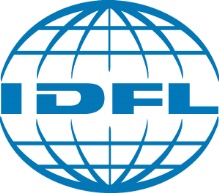Responsible Alpaca Standard (RAS)
The Alpaca is a beautiful animal. Originally from South America, they have been bred for thousands of years by the local population for their prized fur. This fur was sheered, spun, and turned into all sorts of materials and clothing. It was once known as the “Fiber of the Gods” and used specifically to make clothing for royalty.
Today, Alpaca fur is still highly prized for its many amazing qualities. It is naturally water-repellant, odor-resistant, soft, and silky and its production has a minimal impact on the environment. For these reasons (and many more) the demand for responsibly-sourced Alpaca is extremely high. That is what led to the creation of the Responsible Alpaca Standard.
What is the Responsible Alpaca Standard (RAS)
The Responsible Alpaca Standard is a standard that is used to ensure that the Alpaca products that are available on the market are responsibly and sustainably sourced. It is also used as a tool to communicate to retailers and manufacturers that the products and textiles a company is selling match the RAS standard.
It is an internationally recognized and voluntary system created by Textile Exchange that is used by farmers, industry, and retailers to display and communicate their commitment to responsible practices involving Alpaca farming.
What Does the Responsible Alpaca Standard Cover?
There are many facets involved in the production of Alpaca fibers. Everything from the raising of the animals to the supplier to retailer transactions is covered under the RAS. This includes:
- Environmentally Responsible Farming Practices. The RAS ensure that farmers are responsibly using and managing their land while raising their Alpacas. Pesticides, fertilizers, soil management, and the local biodiversity are all factors that are considered.
- Socially Responsible Farming Practices. The people working on the Alpaca farms and how they are treated is another core pillar of the RAS. Child labor, collective bargaining, human rights and health and safety protocols must all fall in line with the Responsible Alpaca Standard for certification to be approved.
- Proper Animal Welfare Practices. Alpacas who are being raised for their fur must be treated well and properly taken care of. This means the right amount of water and food, as well as access to the outdoors and how they are treated throughout transport, are taken into account when being audited for the RAS certification.
It also includes the processing of the Alpaca fibers, its transition from textile to material, and all the steps in between.
Who is Certified for the RAS?
The Responsible Alpaca Standard is given only to companies whose entire supply chains comply with the RAS certification standards. Every transaction from the farm to the retailers must be recorded with certificates to prove the validate the transaction. This can be a farmer who wants to market his Alpaca products, a textile company that is selling Alpaca, or a manufacturer that makes Alpaca products.
Who Does the Certification for the RAS?
These certifications are done by third-party companies that perform audits and inspections to ensure that all parts of the supply chain comply with the Responsible Alpaca Standard.
Who Benefits from the Responsible Alpaca Standard?
The Responsible Alpaca Standard benefits any company or individual that wants to:
- Communicate to the world their commitment to responsible practices
- Validate their consumer’s loyalty to responsibly sourced products
- Use internationally recognized and established standards to elevate their brand and capitalize on new markets
How Can You Be Certified in the Responsible Alpaca Standard?
IDFL is a leader in the certification of products and materials, including the Responsible Alpaca Standard. Reach out to IDFL today at audits@idfl.com and see how IDFL audits can lead to you earning the Responsible Alpaca Standard certification.

